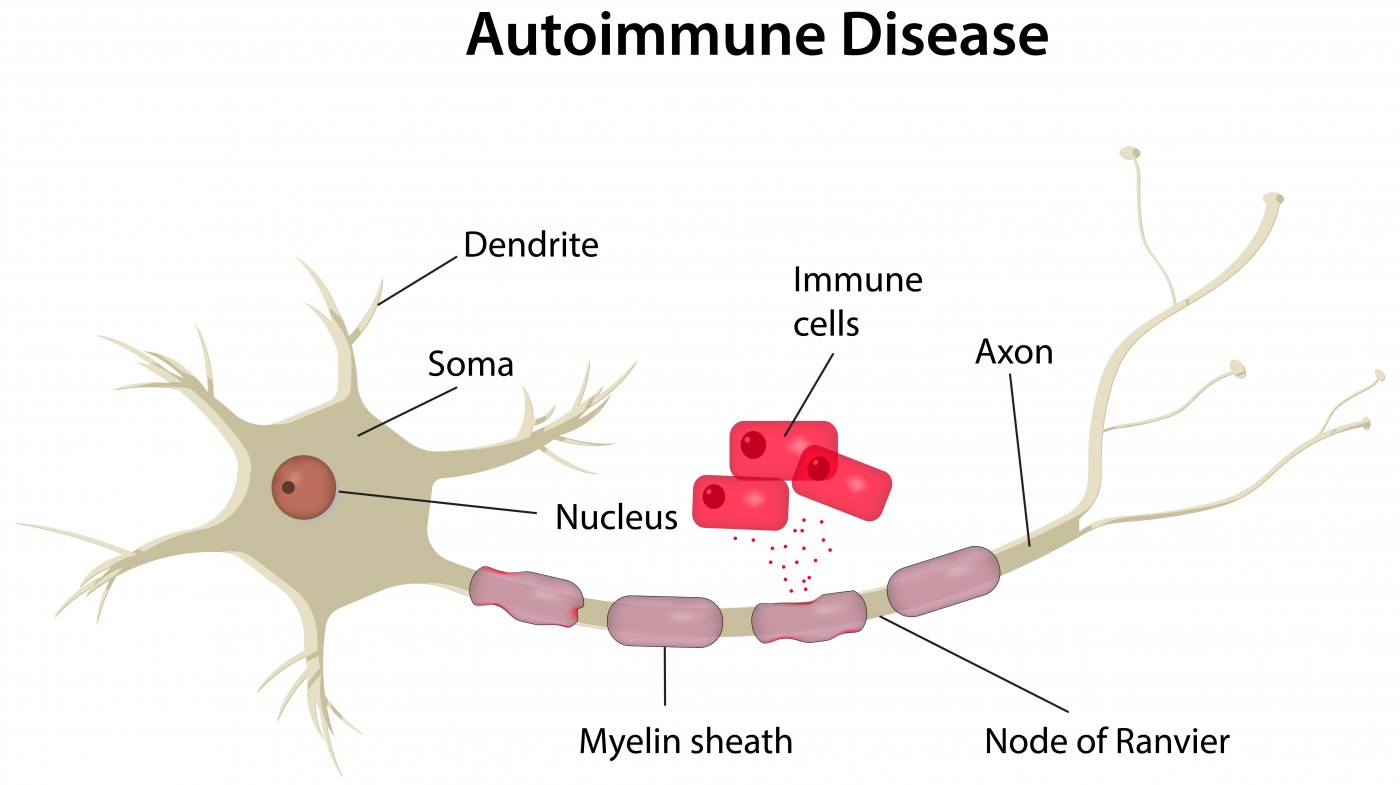Potential Mechanism in MS Pathogenesis Seen in Study

Researchers found that a group of untreated patients with multiple sclerosis (MS) and patients with chronic fatigue syndrome/myalgic encephalomyelitis (CFS/ME) carry a specific group of hyperactivated immune cells, the inflammatory CD8+ T cells, suggesting a potential common mechanism contributing to disease pathogenesis. The study, “A Preliminary Comparative Assessment of the Role of CD8+ T Cells in Chronic Fatigue Syndrome/Myalgic Encephalomyelitis and Multiple Sclerosis,” was published in the Journal of Immunology Research.
The immune system carries a special group of immune cells, called CD8+ T cells, with key functions in regulating immune system responses during an infection. Notably, CD8+ T cells have been identified in central nervous system lesions of MS patients, where they were suggested to contribute to the pro-inflammatory environment.
MS is an immune-mediated disease of the central nervous system characterized by destruction of the myelin layer within nerve cells, leading to a wide range of neurological symptoms. Recent studies reported that some MS patients develop CFS/ME, evidenced by a significant impairment in patients’ physical activity as a consequence of severe fatigue.
Since immune dysregulation is a common feature of both CFS/ME and MS, researchers investigated the levels and maturation of CD8+ T cells in serum samples collected from 23 CFS/ME patients, 11 MS patients without any history of immunomodulatory therapy, and 30 non-fatigued controls. To identify the subsets of CD8+ T cells at different stages of differentiation, researchers used stage-specific monoclonal antibodies.
The team found that CFS/ME and MS patients exhibited a significant impairment in several subsets of CD8+ T cells, with MS patients showing a particularly significant differential expression of several surface receptors within subsets.
The findings suggest that untreated MS patients may carry hyperactivated inflammatory CD8+ T cells as a result of major deficits in the expression of receptors and adhesion molecules on subsets of this cell population. The same phenotype was observed in CFS/ME patients (although MS patients seem to carry more severe immune dysregulation), suggesting that these deficits are a potential underlying mechanism contributing to the pathogenesis of these diseases. Further studies with larger cohorts of patients are, however, necessary to confirm these preliminary findings.






